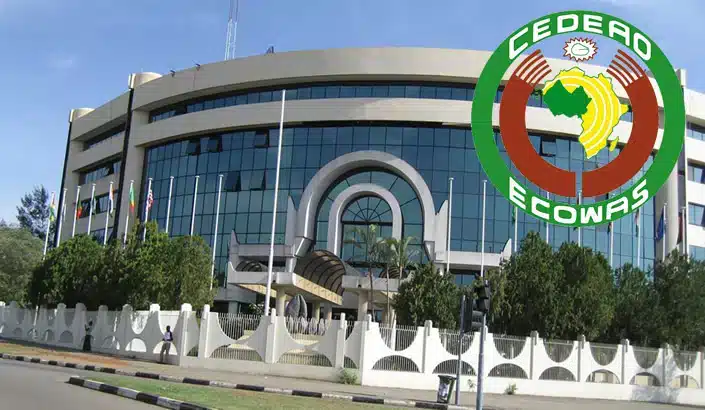The withdrawal of Mali, Niger, and Burkina Faso from the Economic Community of West African States (ECOWAS) becomes official on Wednesday, marking a pivotal moment after a year of escalating political tensions. This decision fractures the region and casts uncertainty over the bloc’s future.
On January 29, 2024, the military-led governments of these three nations formally informed ECOWAS of their intent for “immediate” withdrawal. However, the organisation’s rules required a one-year notice period for the departure to take effect.
That period ends Wednesday, despite ECOWAS urging an extension by six months to seek resolution. The three nations, now united under the Alliance of Sahel States (AES), stood firm on their decision.
A New Alliance in the Sahel
Burkina Faso, Mali, and Niger have criticised ECOWAS for imposing “inhuman, illegal, and illegitimate” sanctions following the coups that brought their military regimes to power. They also argue that the bloc has failed to provide sufficient support in combating jihadist violence, accusing it of serving the interests of France, their former colonial ruler.

Paris has become a shared adversary for the AES nations, which now prioritise alliances with countries like Russia, Türkiye, and Iran.
ECOWAS Faces Challenges
Tensions escalated after Niger’s July 2023 coup, which prompted ECOWAS to threaten military intervention and impose strict economic sanctions on the country—sanctions that have since been lifted.
On Wednesday, the AES will introduce a shared passport and has announced plans for a 5,000-strong unified military force to tackle jihadist threats.
The departure of three founding members significantly undermines ECOWAS’s capacity to manage political crises in the region, according to Gilles Yabi, founder of the West African think tank Wathi.
Fractured Regional Relations
Conflicts have emerged between the AES and certain ECOWAS nations. Niger has refused to reopen its border with Benin, accusing it of hosting jihadist training camps, while also claiming that neighbouring Nigeria serves as a “rear base” for efforts to destabilise it. Both Benin and Nigeria deny these allegations.
Diplomatic Shifts: Togo and Ghana
The regional power dynamics are shifting, with Togo playing an increasingly prominent role. Its port in Lomé serves as a vital supply route for the landlocked AES countries, and its government has positioned itself as a mediator in the crisis. Togo’s foreign minister recently suggested the possibility of joining the AES, a move that could further weaken ECOWAS.
If Togo, with its maritime access, were to exit ECOWAS, the bloc’s viability would face serious doubts, according to Rinaldo Depagne, deputy Africa director at the International Crisis Group (ICG).
Ghana, under the leadership of newly elected President John Dramani Mahama, is also engaging with the AES. Mahama has met with its leaders and plans to appoint an envoy to the alliance. His approach differs significantly from his predecessors, reflecting a more flexible stance on military-led governments.
Rethinking ECOWAS’s Future
The crisis has reignited calls for ECOWAS to refocus on its core economic mission and reconsider its principles regarding governance and democracy.
Some believe the AES could serve as a testbed for reform, with the potential to reintegrate into a transformed ECOWAS. Strengthening ties between the AES and ECOWAS, particularly in areas of economic cooperation and security, is essential to address the shared threat of jihadist violence, which has increasingly impacted coastal ECOWAS nations like Benin and Togo.
While the withdrawal signals a dramatic shift, it also underscores the urgency of regional unity to tackle common challenges.

